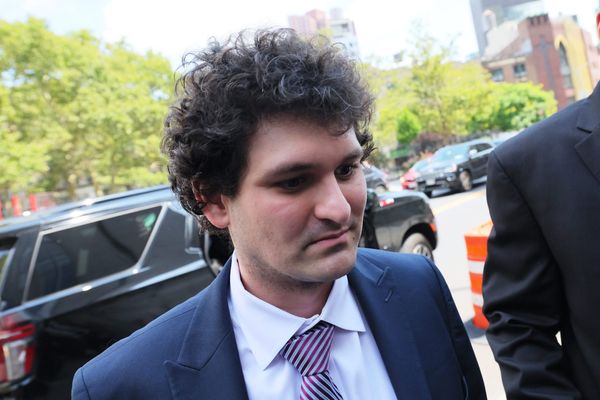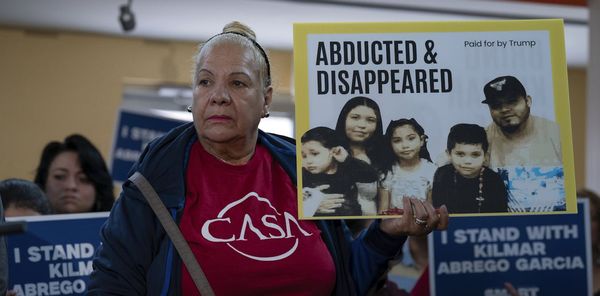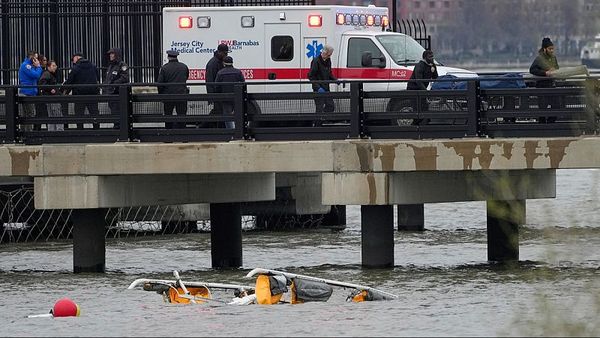Leaders on the Tiwi Islands have welcomed the Commonwealth's introduction of biosecurity zones for remote Northern Territory communities — but fear it won't be enough to stem growing outbreaks.
In a media statement delivered on Wednesday night, federal Health Minister Greg Hunt introduced strict biosecurity zones preventing travel to and from dozens of remote communities.
The measure is due to lift on February 17.
It came after the Tiwi Land Council, which represents the eight clan groups on the islands, wrote a letter to the federal government requesting the islands be declared a biosecurity zone for three months under the Commonwealth Biosecurity Act — a measure applied to many remote communities at the beginning of the pandemic.
The islands are facing outbreaks across two of its biggest communities, Wurrumiyanga on Bathurst Island and Milikapiti on Melville Island.
In Milikapiti, a town of about 450 people, more than half the community is infected.
The new biosecurity zone will apply to the ward of Bathurst Island, Milikapiti and Pirlangimpi.
Tiwi Islands Land Council chief executive Andrew Tipungwuti said he supported the measure, which "would limit people from coming and going off the island" in a bid to primarily stop returning residents bringing back COVID-19 from Darwin.
However, he said he wanted the biosecurity zone to last for three months — not two weeks — to allow authorities more time to conquer the island's growing outbreaks.
"There will be no exceptions of anyone leaving the island, unless you're going for patient travel, unless you're deemed an essential service person or have extreme circumstances being exempt by the Tiwi Land Council," he said.
He also suggested the measure be evaluated and possibly extended every two weeks, if necessary.
"If our cases are still spiking in a week after the biosecurity [zone] runs out, we want to have that opportunity to continue that, to keep it in lockdown and contain it and manage it on island, on Country, ourselves," he said.
COVID-19 on the Tiwi Islands
According to NT government data, all three of the Tiwi Islands' biggest communities — Wurrumiyanga, Pirlangimpi and Milikapiti — have full COVID-19 vaccination rates of 80 per cent or more for people aged five and over.
Despite these strong rates, NT Health has transported dozens of Tiwi Islands residents to Darwin for treatment in hospital or to isolate at Howard Springs quarantine centre.
In a statement to the ABC, NT Health Minister Natasha Fyles confirmed the government had transported cases in "high risk categories to isolate effectively".
"People who live in remote areas will have individualised care plans considering their health status, their choices about where to isolate and the capacity to move to alternative accommodation if required," she said.
The NT government was unable to provide an exact number of the COVID-19 cases recorded so far in Milikapiti and Wurrumiyanga before deadline.
Mr Tipungwuti said it was possible the Tiwi Islands football grand final and arts sale day — an annual event in Wurrumiyanga that attracts thousands of tourists — may not go ahead for the second time in three years.
"There is a good possibility that a spike of this virus will rise in Wurrumiyanga over the next week," Mr Tipungwuti said.
"And when that does... the periodic grand finals will be one that doesn't take place this year."
Adding to concerns is an ongoing lack of rapid antigen tests, Mr Tipungwuti said.
"Still today, our community clinics have a limited supply of rapid antigen [tests]," he said.
"They have now said they will not do any more rapid antigen testing, because they need that for those with symptoms that go to the relevant clinics in their area."
However, Ms Fyles said there was a "steady supply of rapid antigen tests available at all NT Health clinics, including in the Tiwi Islands".
"Priority for rapid antigen tests is given to people who are close contacts or symptomatic," she said in a statement.
Health response lacking across NT, say community leaders
The Tiwi Islands sit at the northern tip of the Territory, but calls for the NT government to escalate its health response stretch to communities as far south as Central Australia and the APY Lands.
Coronavirus has rapidly spread to remote communities in every NT region in the past six weeks since the Territory's borders reopened.
Since then, Aboriginal health organisations, land councils and legal bodies have accused the government of failing in its health response.
On Wednesday, Tanya Luckey, a remote community resident in Imanpa 270 kilometres south of Alice Springs, said she felt abandoned after COVID-19 hit the town last week.
"I'm feeling quite angry because the government opened the door for this virus to enter in," she said of the government's decision to unwind border restrictions in December.
"We were doing the right thing for the last two years. We followed all the rules.
Ms Luckey, who works at the community store, said there are no health staff in the community and that she had been left to distribute test kits to residents.
"I felt really upset about it because it's not my responsibility to go around testing everybody in the community," she said.
"You guys need to do it, I don't want to go around testing people and putting my life at risk, I've got kids at home."
Two hundred kilometres north-west of Alice Springs, in Laramba, there are two health clinic staff, no police and no facilities to ensure at least 30 infected residents quarantine, according to one community member.
"The problem that we can see is that the people who are [infected] are around a lot," Central Desert Regional Council president Adrian Dixon said.
"Where can we get support from? We have police two and a half hours away from our community.
"Yes we would like to hear from anybody who can support us. And also, stock in the store is running out."







